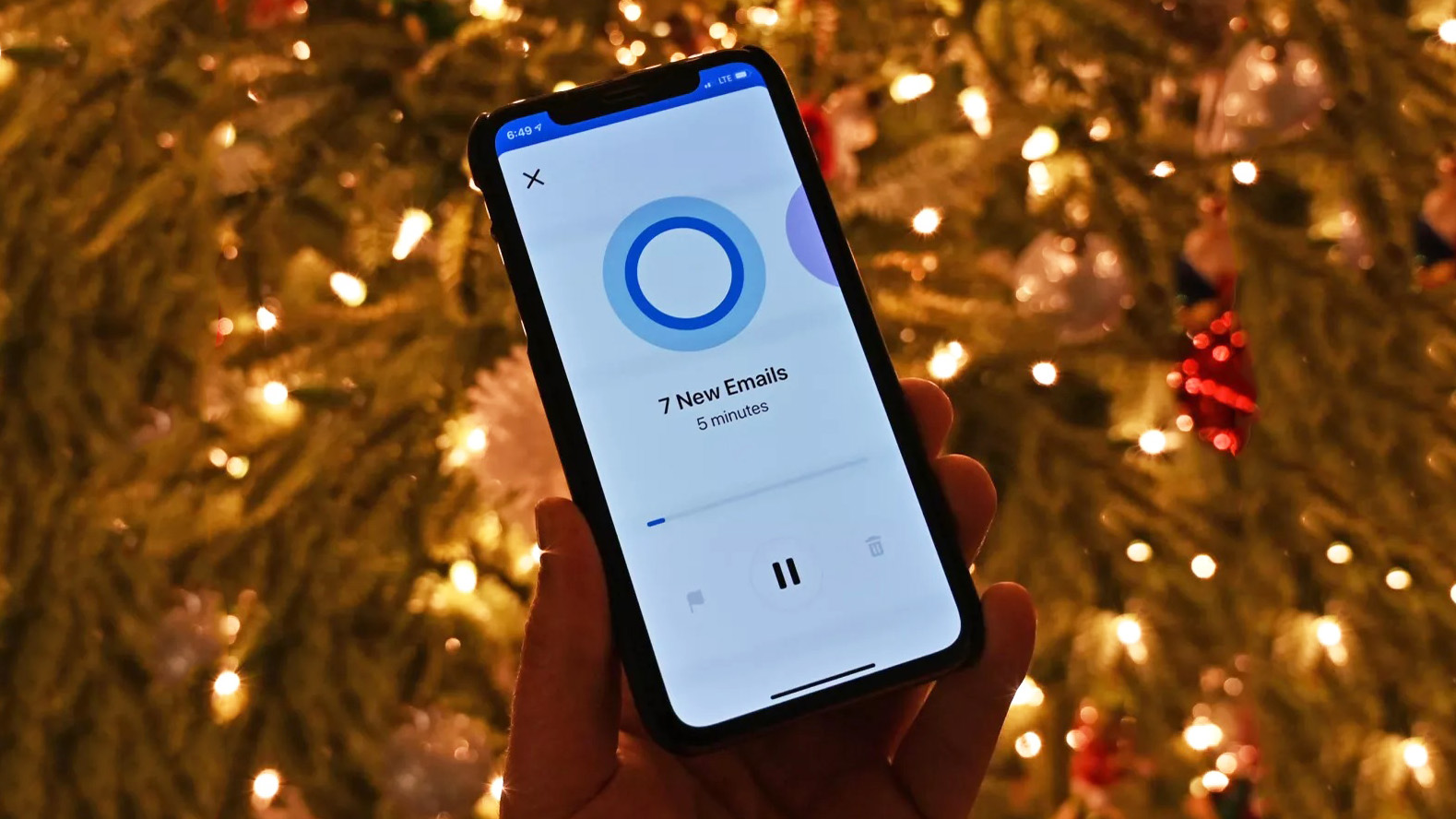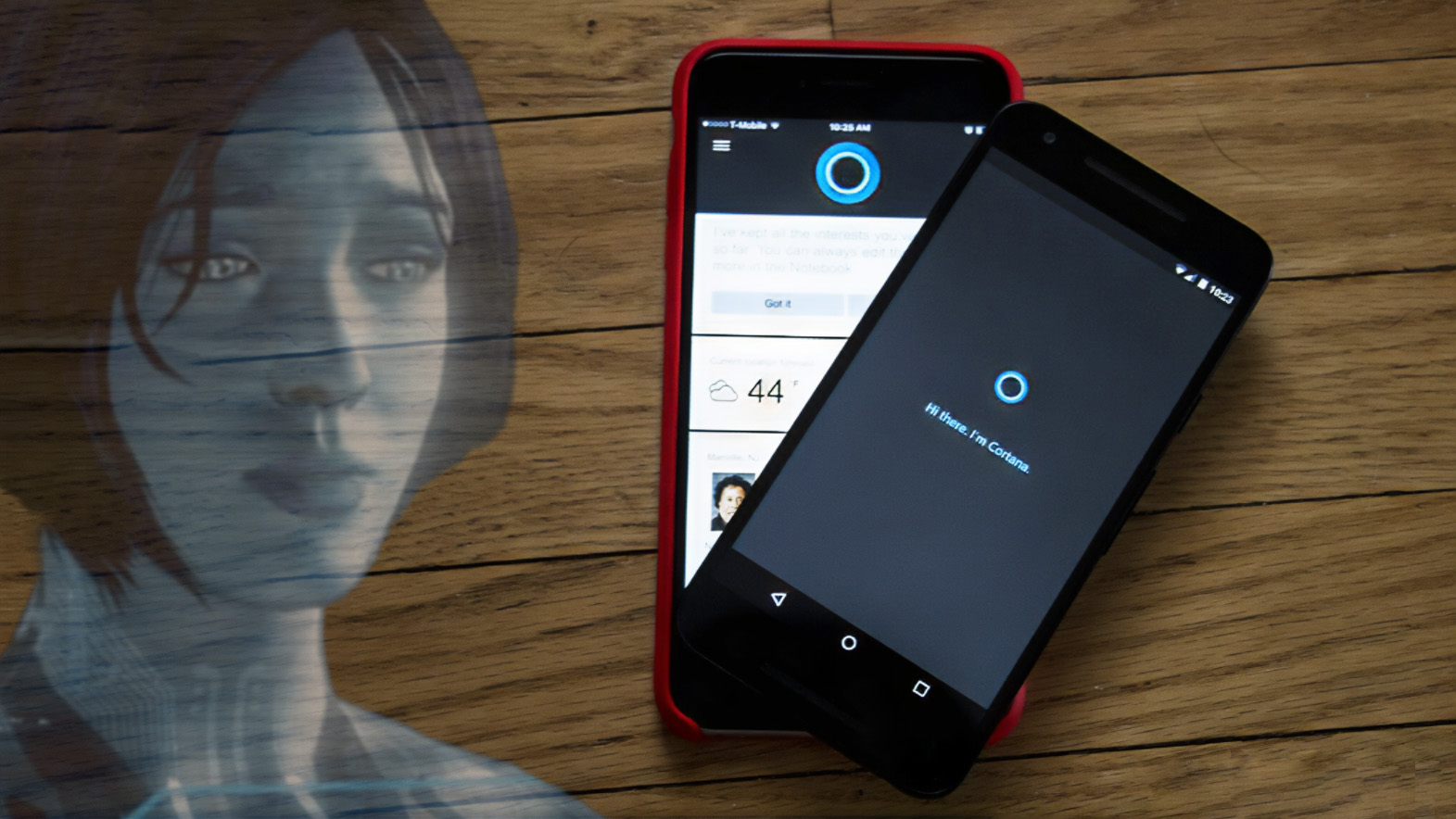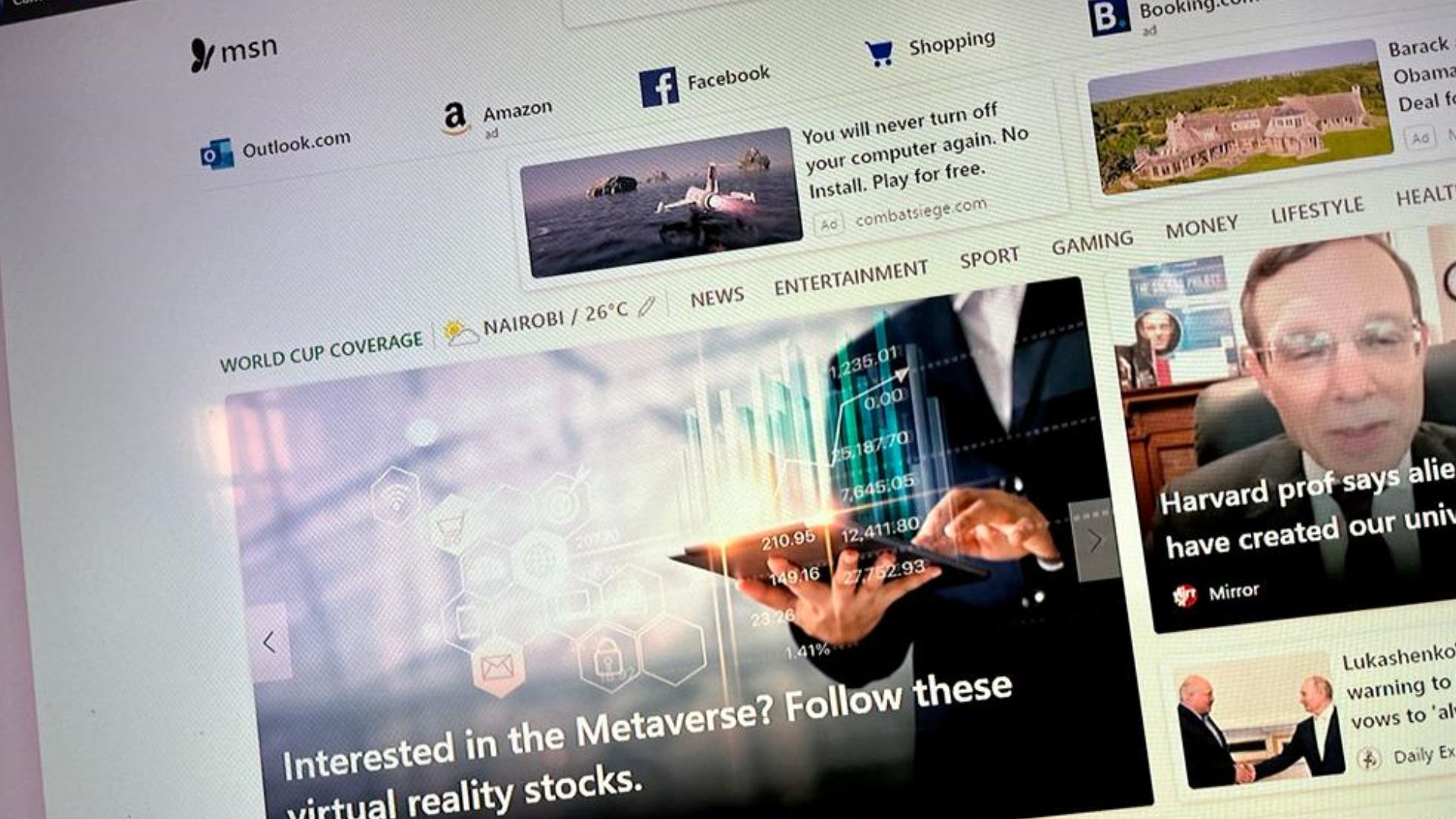Why Microsoft won't be the company to mainstream generative A.I.
No consumers, no data, no quality.

All the latest news, reviews, and guides for Windows and Xbox diehards.
You are now subscribed
Your newsletter sign-up was successful
Microsoft's all in on AI, just like it was all in on the metaverse last year, and Windows Phone a few years earlier.
I feel like we've been here before. Microsoft has a huge opportunity with something truly innovative, something potentially pivotal for how humans interact with computers, and I already see the pattern emerging before my eyes.
Humans are hard-wired to recognize patterns. If you follow Microsoft as long as we all have here, as well as you guys reading this — you might be right to have a bit of skepticism over how Microsoft's OpenAI partnership might play out.
Microsoft has been in court this week, summoned by the FTC to discuss Google's search monopoly. Some of the comments made there had me wondering exactly just how far Microsoft aims to go with its OpenAI partnership. Is this just another flash-in-the-pan attempt, in vain, to take on Google's search dominance? Does Microsoft really expect that it can change user behavior with only Windows as its sole consumer destination?
Here are some reasons why I don't think it will be Microsoft (but more likely Google or Apple) who mainstreams generative AI with consumers.
No vision for AI in hardware

The first thing I thought when I saw Windows Copilot launching was, "oh wow, I wish this was on my Cortana Invoke." You'd be forgiven for not knowing wtf the Cortana Invoke is.
The Cortana Invoke from Harman Kardon was an ill-fated partnership between Microsoft and the audio company to build a premium competitor to Amazon's Echo smart speakers, powered by Cortana. Cortana was Microsoft's virtual assistant app baked into Windows Phone 8.1 and later other platforms, and was eventually abandoned along with Windows Phone later on. Cortana was essentially an endpoint for Bing with a fun interface, and it was cool when it launched, and there was a clear vision that one day it could be similar in power to the current iterations of ChatGPT. However, of course, it was not meant to be.
All the latest news, reviews, and guides for Windows and Xbox diehards.
Right now, the only way to access Microsoft's version of ChatGPT is via Bing, a website that only has 3% of global search market share per Microsoft's own admissions. Bing's search queries make my Amazon Echo speaker seem like a Stone Age tool by comparison, and it's almost insulting how dumb Alexa is compared to Bing. But ... I don't always have my laptop on. Hell, I don't always have access to my phone either. How seamless would it be to just ask questions to a handy nearby assistant who listens when prompted?
Unfortunately, Microsoft no longer has access to this kind of endpoint. Amazon is developing its own generative AI systems, and most likely wouldn't be interested in allowing Microsoft to further entrench itself.
There are rumors that Jonny Ive of Apple fame is potentially exploring hardware ventures with OpenAI, too. Why isn't Microsoft exploring this? Why has Microsoft given up its top hardware innovator in Panos Panay to Amazon just last week?
It's the devices we carry around with us all day, every day, that would've been best for Bing Chat AI adoption. Alas, Microsoft has little chance of making gains there either.
Limited control over the "defaults"

Google is currently being hammered by the U.S. Federal Trade Commission over its "monopoly" in search. Google enjoys a whopping 92.47% market share globally, challenged (and I use that word loosely) only by state-backed alternatives, and Microsoft's Bing.
Google's search platform is objectively superior to Bing. For general queries, Bing can come close to Google, but the lack of data (from users, you know, not using it) has backed Bing into an endless loop of "low users means low quality means low users." During the hearings with the FTC, Microsoft CEO Satya Nadella described how difficult it has been for Microsoft to put a dent in Google's market share, owing to how Google buys up exclusive and lucrative "default" positions on major smartphone platforms, including Apple's iOS, Samsung Galaxy, and others.
The rise of Google Chrome also allowed Google to entrench its position further, since Google is naturally the "default" search engine on that web browser. The vast, vast majority of users do not change the defaults, even if they are able to do so, because "why bother?" The untrue rumor that Samsung was considering dropping Google for Bing earlier this year hit Google's share price, which is a reflection of how crucial these default positions are.
I use Bing begrudgingly for the rather generous Microsoft Rewards points that let me grab free Overwatch 2 battle passes. And honestly, Bing seems to know me well enough to offer good results for basic queries. However, if you stray into more complex queries, granular queries, historical questions, or crucially, local searches — Bing completely falls apart. Bing simply doesn't have access to the necessary data.
Apple, Samsung, and others don't want to compromise their user experiences by going with an objectively inferior product, regardless of how much money Microsoft offers. Microsoft, however, does control one endpoint, obviously, and that's on Windows 11.
I'm not confident that the data set Microsoft can absorb from user behavior on PC will help it mainstream its platform with consumers before Google potentially could, or Apple potentially could, owing to their control of mobile computing. There's an air of assumption here, but my gut tells me user habits on PC are simply very different from that of mobile. Despite baking Copilot (Microsoft's disguised Bing AI assistant) directly into the Windows shell, people still default their search engines to Google, at the end of the day. Features like Live Tiles, Microsoft Edge, or even Cortana herself prove that simply baking something into the shell doesn't guarantee interaction. Google has been very adept at changing user behavior through Android, though, with features like Google Discover.
Google in particular is far too dominant over the analysis of web data, and as publishers and other creators seek to close down access to their data for generative AI models, how exactly does Microsoft hope to compete with Google for access?
No leverage with creators, or publishers
During the FTC hearings, CEO Satya Nadella also remarked that he's already heard of platforms exploring charging Google, Microsoft, and other generative AI platforms for access to their data sets. Certain commentators and platforms have already kicked up a stink over how OpenAI and others simply "took" data en masse across sites like Reddit and Twitter. Even here, we've had internal discussions off the cuff about how our content across our company has been adopted and "borrowed" by Bing and others, to produce its results. Bing doesn't compensate us for this, although Microsoft's Yusuf Mehdi previously discussed a vague "plan" to do so ... someday. Maybe.
Disregarding the fact that ChatGPT etc. will get dumber if sites like ours get put out of business by their actions, bigger players like Reddit may simply opt out of giving these platforms access to the data they use to train their models. The EU is aggressive at defending user privacy, and may also eventually give users the ability to opt-out of having their interactions used in this way.
Either way, in a world where major platforms close themselves off to generative AI models and their web crawlers, Google is far better placed to get access to these platforms again. Google has more leverage over publishers owing to its search monopolies across both Google Search, Google News, and YouTube. Microsoft bailed on Mixer before it could get going, and MSN's (Microsoft News) user base is minuscule compared to Google News. Google has a far bigger advertising platform, and thus perhaps has far better means to compensate creators than Microsoft, should it ever come to that.
Even if ChatGPT-powered Bing has superior technology, there's a huge question mark over whether Microsoft has the leverage, or search volume, to maintain dataset quality long-term.
Microsoft will succeed with B2B use cases, but lack of foresight has already cost it consumers

Microsoft will find success in AI, and already has. GitHub and Visual Studio's code assistance scenarios are already helping programmers, and generative AI has uses in corporate scenarios for creating meeting notes, summarizing email chains, and the like. Perhaps business-to-business scenarios are more lucrative than consumer-oriented ones, too, anyway. Amazon's Alexa business has notoriously been a multi-billion dollar black hole, and that's without having an electricity-intensive AI backing up the queries. But I think the chips are heavily stacked against Microsoft when it comes to consumers.
Nobody is using Bing, despite the fact you can generate dumb images with its DALL-E access. Accessing Bing for even the most basic ChatGPT-enabled stuff requires changing a change in an individual user's behavior. As soon as Google starts baking this stuff into its phones while forcing it on Android OEMs, I feel like Microsoft will have immediately lost the entire consumer market.
"The distribution advantage Google has today doesn’t go away; in fact, if anything, I worry a lot that – even in spite of my enthusiasm that there is a new angle with A.I., this vicious cycle that I’m trapped in could get even more vicious."
Microsoft CEO, Satya Nadella, to the FTC
AI is still early days, and Microsoft clearly saw it as a key way to differentiate itself from Google. Google pivoted hard, though, and is catching up quickly to offer the same features. Beyond this, though, is a question of how exactly this will function as a business. ChatGPT and DALL-E cost hundreds of thousands of dollars per day to run, and with scale comes cascading costs. How exactly does Microsoft aim to monetize these features, to pay for them? It's far beyond Amazon's Echo conundrum, and Bing doesn't have the mammoth-esque Google Ads business to speak of.
When Microsoft gave up on Windows Phone, it effectively gave up its future in this space. These new paradigms demand changes in user behavior, and furthermore, changes in user behavior for users Microsoft doesn't even have. Outside a few examples, Microsoft has proven repeatedly over the years that it's largely incapable of committing the resources necessary to see these kinds of things through. I expect Bing Chat and Copilot to have a similar trajectory to many other familiar Microsoft efforts — incredible innovations that lack the vision and commitment to find their true potential while being adapted and mainstreamed more quickly by their more passionate, consumer-savvy competitors.
For the sake of breaking Google's monopoly, I sure hope I'm wrong.

Jez Corden is the Executive Editor at Windows Central, focusing primarily on all things Xbox and gaming. Jez is known for breaking exclusive news and analysis as relates to the Microsoft ecosystem — while being powered by tea. Follow on X.com/JezCorden and tune in to the XB2 Podcast, all about, you guessed it, Xbox!


